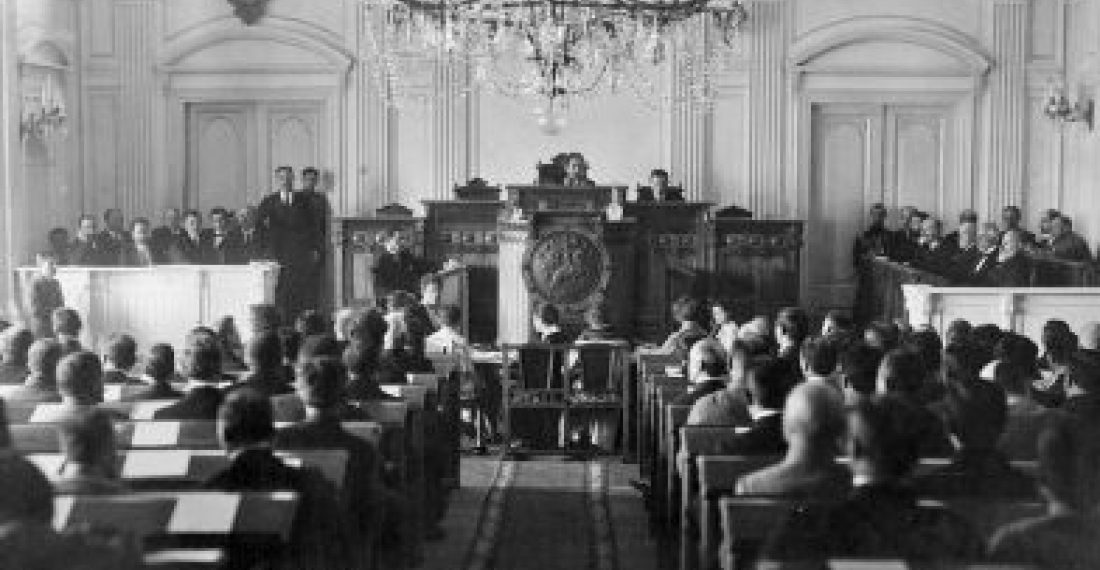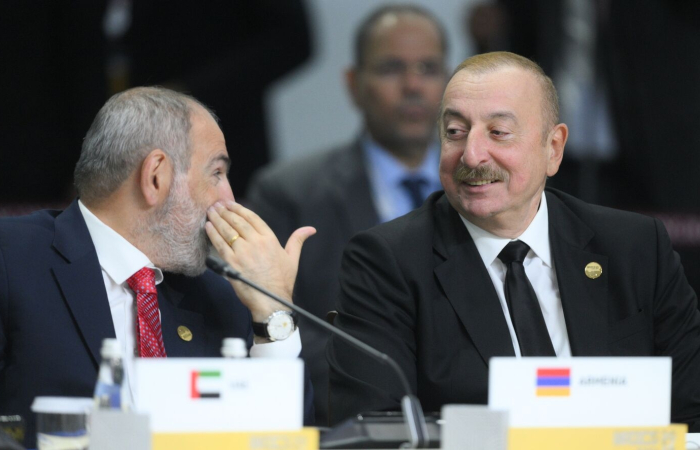Участники приветствовали важность и символичность первых республик и то, как они вдохновили на восстановление независимости в 1991 году.
Молодые армяне, азербайджанцы и грузины приняли участие в весьма символическом мероприятии, прошедшем в Тбилиси в пятницу, 11 мая, в ознаменование 100-летия создания в 1918 году современных республик Армении, Азербайджана и Грузии. Мероприятие было проведено в рамках регионального круглого стола, на котором обсуждались темы регионального сотрудничества, организованные LINKS и Borjomi Innovators Network (BIN).
В начале мероприятия выступающие из трех стран - Георгий Арзиани из Грузии, Александр Петросян из Армении и Эркин Гадирли из Азербайджана, рассказали о процессе появления трех республик сто лет назад и о ценностях, которые лежали в основе движений и личностей, которые управляли теми процессами. Все они приветствовали важность и символизм первых республик для последующих политических событий в регионе и то, как они вдохновили на восстановление независимости в 1991 году.
На встрече также выступили Лаша Дарсалия, первый вице-министр по вопросам примирения и гражданского равенства Грузии, председатель Верховного Совета Абхазской Автономной республики Вахтанг Колбая, и Деннис Саммут, исполнительный директор LINKS.
В своем вступительном слове в начале встречи Дэйм Одри Гловер, известный европейский правозащитник и защитник прав женщин, который также является почетным председателем Borjomi Innovators Network, также принимала участие в мероприятии в качестве специального гостя, воздав должное тем, кто сто лет назад были вовлечен в создание в 1918 году современных государств Армении, Азербайджана и Грузии и тем, кто участвовал в этом процессе после.
По словам Дэйм Одри, молодое поколение могут и должны вносить больший вклад в дело управления конфликтами, а также в установление и развитие мирных процессов. Крайне важно, чтобы молодые люди получили возможность участвовать в программах нового мышления и помогли лучше координировать и укреплять сотрудничество.
Мероприятие продолжилось в субботу (12 мая) в формате круглого стола на тему «Региональное сотрудничество на Южном Кавказе». В ходе круглого стола выступили Георгий Хелашвили, Регис Гент, Сос Аветисян, Деннис Саммут, Рашад Ширинов, Георгий Мчедлишвили, Вахтанг Чарайя, Ашнек Григорян, Гия Абашидзе, Георгий Хурошвили, Рамазан Самадов и Лусине Харатян.
LINKS работает на Кавказе более двух десятилетий и активно участвует в поддержке мирного разрешения конфликтов в регионе (подробнее). Borjomi Innovators Network (BIN) состоит из ежегодной когорты из 35 молодых ученых и профессионалов в возрасте 20-35 лет, родом из стран-членов ЕС, ОБСЕ и ОИК при поддержке группы «ветеранов» и ряда сопредседателей.
источник: commonspace.eu
фото: Декларация независимости Грузии от 26 мая 1918 года (архив)






